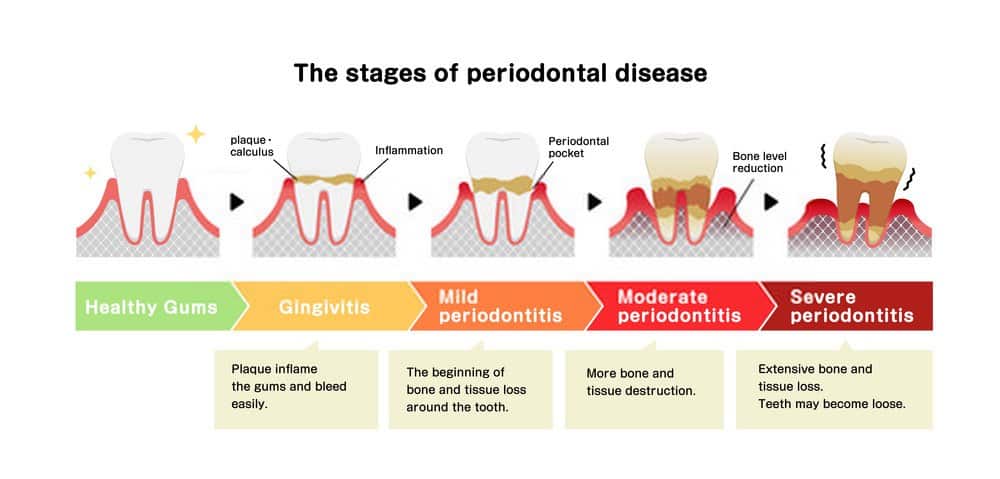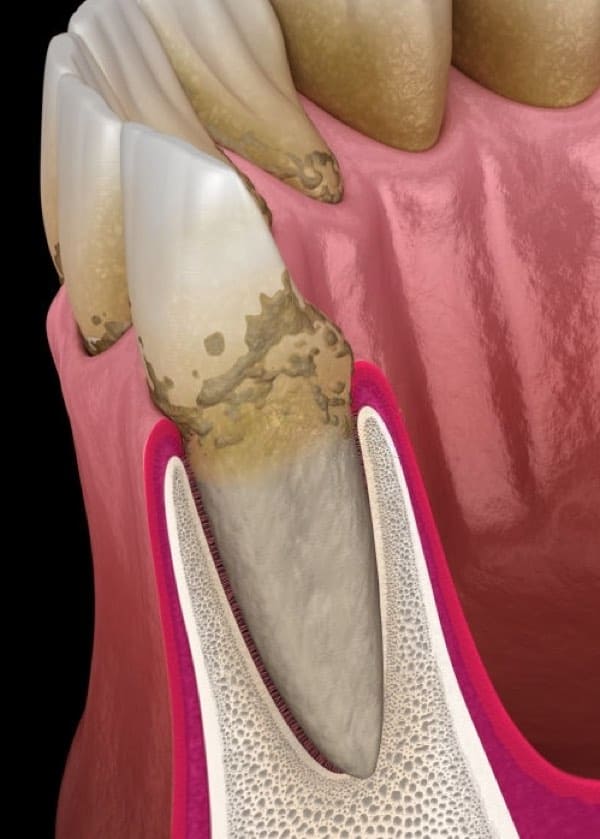Periodontal Examinations and Treatment
Phone
Office Location
4824 S Union Ave,
Tulsa, OK 74107
What is a periodontal screening and recording?
A periodontal screening and recording (PSR) is a quick assessment performed to give your dentist a clear idea of what the most suitable treatment options are for your unique dental situation.
This process usually involves radiographic analysis and periodontal probing, as well as an evaluation and assessment of the gums. An overall score is given to record the overall level of periodontal disease.
What are some of the early warning signs of gum disease?
Although this list is not exhaustive, some of the early signs of periodontal disease include:
- Bleeding gums or gums that bleed easily when brushed or pushed
- Puffy or swollen gums
- Bad breath
- Tender gums
- Bright Red or Purplish Gums
- Pus between your gums and teeth
What are the four stages of periodontal disease?
In American, periodontal disease impacts around 50% of adults aged 30 or older. Periodontal disease can result in a host of health concerns, including tooth loss. Gum disease is a serious condition and should be treated as such. There are four stages of the disease, and only one of these stages is reversible.

Stage 1 – Gingivitis
This is the only stage of periodontal disease that is reversible. At this stage, the bone is not involved and there are only a limited number of signs and symptoms present (many of which are painless).
These symptoms may include bad breath, redness, and swelling of the gums. To reverse the damage caused by this early stage of gum disease, good oral hygiene, flossing, brushing, professional hygienist visits, and regular check-ups are essential.
Stage 2 – Slight Periodontal Disease
This second stage of periodontal disease is not reversible, but is manageable. At this stage, the infection has reached the bone, and the bone-destroying process has begun.
Bacteria will become more aggressive if not addressed, and oral hygiene measures alone will not be sufficient. Redness and swelling will increase, bad breath will be present, and blood when brushing or flossing is highly likely to be present.
Stage 3 – Moderate Periodontal Disease
As with the second stage of gum disease, this stage cannot be reversed. The symptoms are the same as in stage 2. When your dentist probes to see the extent of periodontal disease/damage, probing depths are higher at this stage than in stage 2.
Typically, probing levels at this stage are between 6-7mm, which is significant, as even more bacteria is able to attack your bones, immune system, and enter your bloodstream.
Stage 4 – Advanced Periodontal Disease
As the final stage of gum disease, this occurs with deep infection and the advanced development of disease-causing bacteria in the mouth. There is a high risk of bone loss involved, and your gums may be regularly oozing pus. Your teeth are likely loose, gums red and swollen, and the act of chewing may be painful.
At this stage, periodontal laser treatment or periodontal surgery are the only two viable treatment options. If not treated properly, tooth loss, gum recession, gaps between the teeth, other health issues, and a need for dentures are all likely side-effects.
For both stage 2 and stage 3 gum disease, scaling and root planing are the most effective forms of treatment.
SRP is essentially a deep cleaning process designed to remove deeply rooted bacteria from the gums.
If not treated properly, bone and tooth loss are a near guarantee. Additional likely concerns: shifting of teeth, increased bleeding, and a higher sensitivity of the gums.
Rapid treatment is critical for the later stages of periodontal disease. If you would like to discuss a worsening gum related problem or get an initial diagnosis to see what stage of periodontal disease your gums are at, please contact a member of our team today.
Have questions about cosmetic dentistry?
Here a few of our top articles on cosmetic dentistry:
We're Ready To See You!
Get the help and high quality service you need. Our team is standing by and ready to assist you with any questions you may have.
Contact Information
Payment Methods:

Business Hours
| Monday | 8AM - 5PM |
| Tuesday | 8AM - 5PM |
| Wednesday | 8AM - 5PM |
| Thursday | 8AM - 5PM |
| Friday | Closed |
| Saturday | Closed |
| Sunday | Closed |

